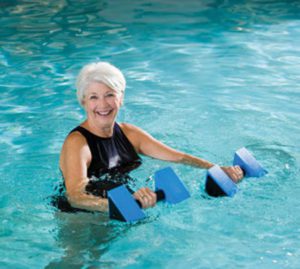 Over 47 million people worldwide have Alzheimer’s disease. Alzheimer’s is the most common form of dementia. Many people just lump all dementias together under the Alzheimer’s umbrella, but there are significant differences and treatment options for each individual diagnosis. However, Individuals with dementia and Alzheimer’s all have many common symptoms and risk factors. Once of those risks is falling due to balance issues related to cognitive decline.
Over 47 million people worldwide have Alzheimer’s disease. Alzheimer’s is the most common form of dementia. Many people just lump all dementias together under the Alzheimer’s umbrella, but there are significant differences and treatment options for each individual diagnosis. However, Individuals with dementia and Alzheimer’s all have many common symptoms and risk factors. Once of those risks is falling due to balance issues related to cognitive decline.
Alzheimer’s Disease and Dementia Risk Factors for Falls:
• Communication issues can lead to accidents
• Delayed reactions
• Disoriented and confused about surroundings
• Impaired strength, mobility, balance
• Muscle weakness
• Medications may cause lightheaded or dizzy sensations
• Shuffling feet may lead to trips and falls
Studies have proven that there are critical elements to stave off and to decrease the progression of Alzheimer’s disease and dementia.
Decreasing the Progression Includes:
• Dietary guidance
• Physical activity and cardiovascular exercise
• Cognitive training and socialization
• Management of metabolic and vascular risk factors
Physical activity has been proven essential for decreasing the adverse cognitive effects of Alzheimer’s and dementia. But how should a patient go about getting exercise if they have a high risk factor of falling and losing their balance? That’s where AQUATIC THERAPY is recognized as a way to help individuals with cognitive and balance issues to get their well-needed cardiovascular activity.
What is Aquatic Therapy?
Along with Alzheimer’s disease and those with balance deficiency, Aquatic Therapy is beneficial for people with arthritis, back pain, muscle weakness, decreased endurance and difficulty with walking. On land, walking is a very beneficial way to exercise with little impact. However, three times your body weight is the amount of pressure put on your knee joints while walking. For example, if you weigh 180 pounds, then 540 pounds of pressure is on your knee joints with every step.
When the body is submerged in water, it has buoyancy, which reduces stress on joints and muscles because the water opposes the weight of the immersed limbs Since our bodies are approximately 15-18% fat, the fat weighs virtually nothing in the water, which helps with agility and promotes a feeling of lightness. This is extremely beneficial for protecting our joints.
A professional rehabilitation therapist can help increase your range of motion and flexibility within aquatic therapy treatment. From underwater treadmills to bikes, weights, belts, and tubes, there are many different types of equipment that can assist you in water treatment, but it is sometimes just as beneficial to use no equipment in aquatic exercising. The specially trained therapists will decide which therapy is right for your specific needs. Underwater (usually waist high) you will build up the strength of your muscles, making them stronger through resistance training, utilizing your own body against the pressure of the water.
Aquatic Therapy Benefits
Water immersion is helpful to relieve pain and to protect weak bones, muscle tears or joint friction. Water exercise promotes relaxation throughout the entire body, which is beneficial for healing and overall health and wellness.
A Safer Way to Exercise and Improved Balance
Individuals that have undergone aquatic therapy have shown great results in improving their balance. Many people no longer require canes or walkers after their sessions have concluded. Each session is approximately 50 minutes long. Individuals that have undergone aquatic therapy have shown great results in IMPROVING THEIR BALANCE, relieving strained muscles and pinched nerves, and gaining better mobility when performing daily tasks.
Increased Oxygen Levels
There have been significant studies on the benefits of aquatic therapy for individuals that suffer from vascular disorders. These cases have proven that the level of oxygen in the blood increases in water, which is ideal for most cardiovascular issues as well as, the Alzheimer’s and Dementia brain. The oxygen consumption (VO2) is three times greater in water than on land. Working large muscle groups leads to this uptake of oxygen.
If you or someone you know could benefit from Aquatic Therapy, please visit, freedomrehabaquatictherapy.com, or call Freedom Rehab at 941-400-1505.
FREEDOM REHAB
941-400-1505
3545 Massini Ave., North Port









